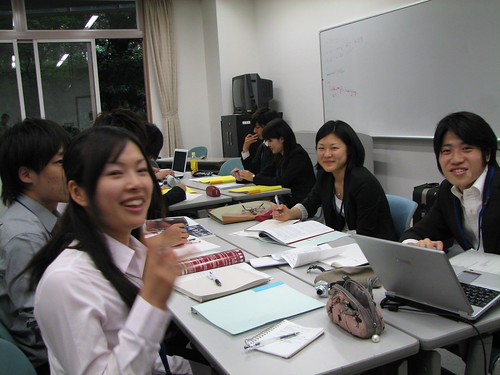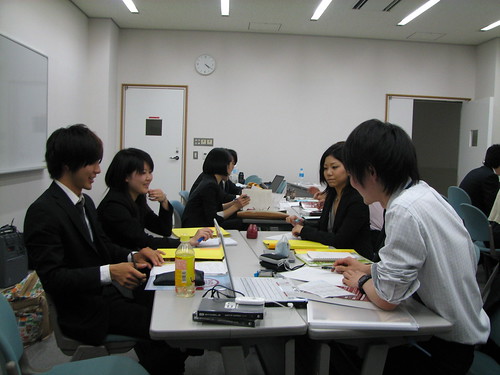What is entrepreneurship and how does it affect us? I just read a fantastic piece in the March 14th, 2009 issue of The Economist, and it’s gotten me thinking more about the global state of economic affairs.
Taking stock of the unemployment figures for April of this year, it is abundantly clear that there is a problem in the United States. The number of unemployed has risen six million to a total 13.7 million over the past year, a figure of 8.9 percent and nearly double what has been seen throughout the decade. Many analysts expect the figure to pass the ten percent mark, a bleak outlook for an already beleaguered American workforce. Japan’s problems are much milder, as is usually expected. Though the central bank cannot slash interest rates any further and consumer price inflation is still knocking on the door of zero, the unemployment rate in Japan is still only 4.8 percent, a slight but noticeable increase over last year.
Why then, does it seem that Japan is in deeper than the US in terms of ‘bouncing back’? Everyone knows that Japan has been cursed with stagnant growth for two decades now, but the causes obviously remain unclear, or something would have been done about it. I see part of the answer in the examination of global entrepreneurship.
The United States is statistically the ‘riskiest’ developed nation in the world. According to The Economist, venture-capitalism is more than twice as developed in the US as it is in the EU. An astonishing 22 percent of startups have become top-1000 companies in the US since 1980, compared to only five percent in Europe. I encourage you to read the article, but if I may paraphrase: the United States is an adept at taking risks and derives much of its momentum from such activity. Surely, there is nothing more hip in the states than to be working for a young startup.
Japan, on the other hand, is almost pre-programmed to detest entrepreneurship. Granted, there are startups and there are success stories, but Japan was ranked as the least entrepreneurial of all developed nations. This honor can be attributed to a number of things, including harsh bankruptcy punishments, an inability to innovate and a different set of priorities for top-tier workers and graduates. Even if young companies were able to create exciting new products without the fear of severe penalties, the brightest and most capable minds are attracted mostly to established companies and large banks, as well as government.
The result is a country that exhibits slow but steady growth in the traditionally recognized industries and little progress in new sectors. Large firms and banks take on most of the top workers in the country, starving underdeveloped industries for new talent. Corporations are hell-bent on making their known products better and better to stay ahead of a rapidly growing pool of competitors. In the scramble, it looks like they’ve forgotten to keep making new and infectious products like the iPod. Japan will need its own iPod if it hopes to restore growth to something acceptable. So, in an ironic twist of fate, the same attributes that brought Japan such acclaim during the late 20th century are the same ones that threaten to strangle it during the early 21st century. I would prescribe some inventiveness for Japan; make risk-taking a little more socially and legally acceptable and let Japanese business reach its full potential once again.
And, as an afterthought, the American unemployment woes. Our current nine percent rate of unemployment is only two percent above what was during the 1990s considered to be the non-accelerating inflationary rate of unemployment. NAIRU has changed, though, and so should our policies. I am a proponent of wage subsidies. The Federal government encourages companies to hire less-skilled workers and offsets the corresponding decline in private sector production per unit of labor with a subsidy. In return, the unemployment rate falls, and the burden of crime and welfare programs is slashed. The added bonus and this policy’s advantage over conservative ideas is that unlike increased labor mobility (making it easier to hire and fire workers), wage subsidies develop and train untapped labor. For further reading on the subject, I suggest the works of Nobel Economics Prize winner Edmund Phelps.
Colin
Zoeller sump pump owners manual
2 years ago


 Public Interest vs. Individual Rights RT
Public Interest vs. Individual Rights RT







